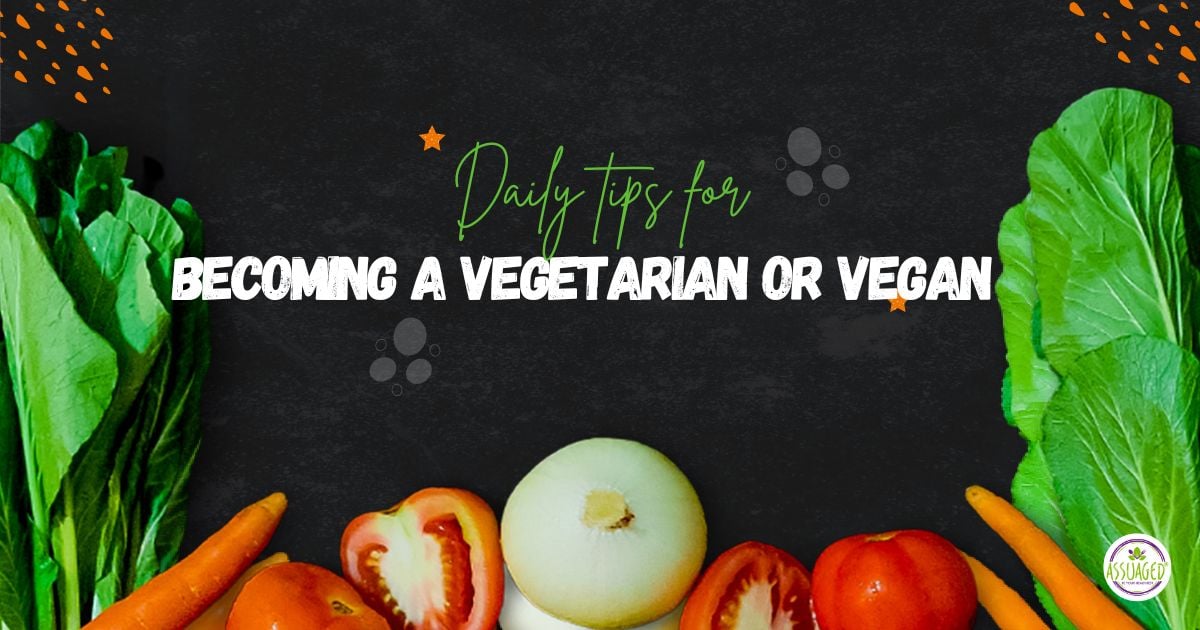
Going Herbivore
Transitioning from omnivore to herbivore can present challenges but can also be incredibly fulfilling.[1] This discussion delves into the reasons why this transition may be worthwhile. Addressing the potential obstacles one may encounter along the way and discussing the experiences one might have.
Many individuals adopt a vegetarian or vegan lifestyle to combat animal cruelty, protect the environment, and improve their health.[2] However, challenges are also involved [1], such as finding appropriate sources of nutrients, navigating social pressures from loved ones, and locating vegan-friendly dining options.
Nonetheless, some people have discovered that transitioning to a vegan lifestyle has positively impacted their well-being[2]. Ultimately, it is a personal decision that requires careful consideration of the pros and cons.
A vegan diet has been linked to reduced blood pressure, cholesterol, and blood sugar levels. It is also lower in calories and saturated fats, which can lead to weight loss. In addition, a vegan or vegetarian diet can also contribute to environmental protection by reducing animal cruelty, greenhouse gas emissions, and water usage.[1][3]
Herbivore Lifestyle Transition Experiences
Adopting an herbivore lifestyle can offer many advantages.[2]. Firstly, it can favor your health; by removing meat and other animal products from your diet, you can decrease the risk of developing chronic illnesses such as heart disease, diabetes, and particular types of cancer. A plant-based diet can also enhance your digestive system by promoting gut health and improving digestion.
Nonetheless, transitioning to an herbivore lifestyle also presents its own set of obstacles.[1]One of the most common challenges is finding suitable substitutes for meat and other animal products in your diet. This requires imagination, experimentation, and a willingness to explore new foods and recipes. Additionally, adhering to a new eating routine and navigating social gatherings where food is served may be challenging.[2]
Another obstacle you may face is maintaining a balanced and nutritious diet.[4] Although fruits and vegetables are filled with essential vitamins and minerals, it is crucial to ensure you consume sufficient protein, iron, and other vital nutrients. This necessitates careful planning and supplementation, particularly for individuals transitioning from meat to plant-based sources.
Despite these challenges, adopting an herbivore lifestyle can be an enlightening and empowering experience.[1] It allows you to discover new flavors and ingredients and thereby reconnect with your body's natural hunger signals. One may observe increased vitality and energy and improved mental clarity and focus.
Herbivore Lifestyle Considerations
Transitioning to an herbivore lifestyle is a decision that requires careful consideration and planning. It is important to know the potential challenges [5] before the transition and prepare accordingly. The following tips can help facilitate a smoother transition:
- Consider starting gradually. Rather than abruptly eliminating meat from the diet, reducing meat intake while incorporating progressively more plant-based foods is recommended. This can help minimize cravings and withdrawal symptoms.
- Do research. Educating oneself on the benefits of an herbivore lifestyle, including plant-based nutrition and meal planning, can provide valuable insights and help one make informed choices.
- Invest in plant-based foods. Stocking the pantry with whole grains, legumes, nuts, and seeds can help prepare nutritious meals and snacks that are satisfying and tasty.
- Find support. Joining online communities or connecting with others transitioning to an herbivore lifestyle can provide valuable advice and support.
- Experimenting with new recipes helps expand culinary horizons. Plant-based cookbooks, blogs, and social media accounts can inspire finding plant-based versions of favorite meals and trying different cuisines.
- Patience is key. The transition to an herbivore lifestyle may take time, and it is important to allow yourself time to adjust to the new routine and find what works best for you.
Remaining flexible is important. While it is recommended that much of the diet be plant-based, it is not necessary to eliminate all favorite foods. The occasional meat-based meal or treat is acceptable if much of the diet remains plant-based.
Summary
In conclusion, transitioning to an herbivore lifestyle can offer numerous benefits, including improved health, reduced environmental impact, and decreased animal cruelty.
However, it can also present challenges, such as finding suitable substitutes for meat and navigating social situations. Therefore, careful planning and preparation are crucial before making the switch.
By starting gradually, educating oneself, investing in plant-based foods, finding support, experimenting with new recipes, being patient, and remaining flexible, one can transition smoothly and enjoy the many advantages of an herbivore lifestyle.















